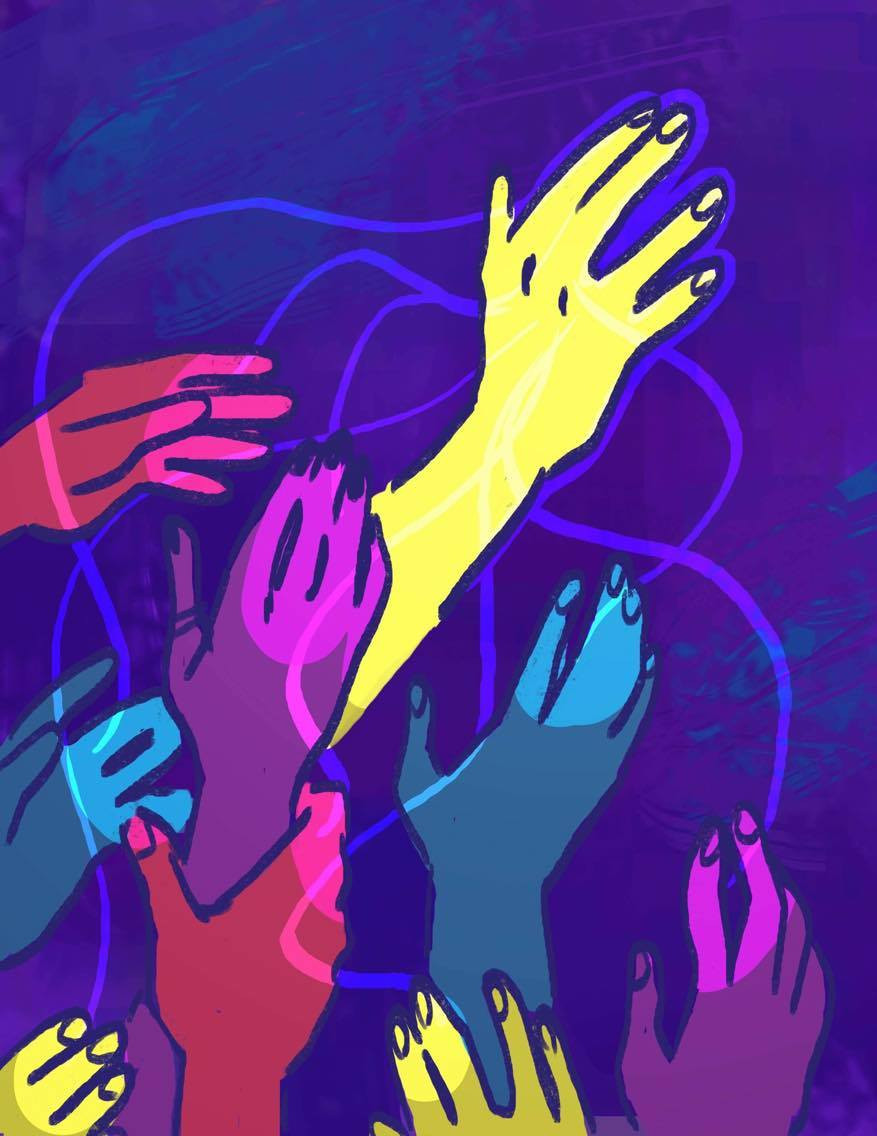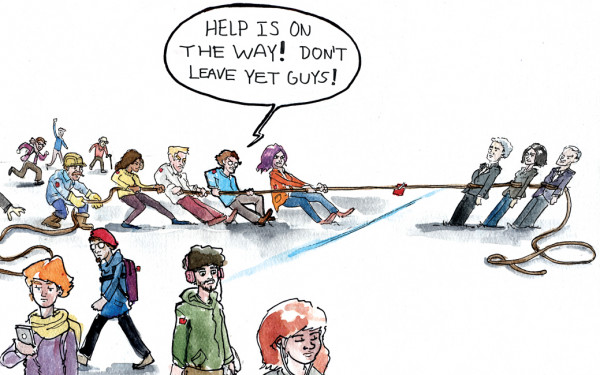Raise Your Voice in Support of the Muslim Community
Concordia Students Share Tips and Concerns in Response to Bill 62
Despite the never ending news cycle and global journalism, it is very important that we don’t let certain stories become “old” within a few weeks of them having been published—the effects of some news stories last much longer than that.
Bill 62 might be “old news” and some might have directed their attention elsewhere, but the law is still there.
Bill 62 is one of Quebec’s attempts at religious neutrality that disproportionately affects Muslim people. It is directed at Niqabi people who want to give or receive public services, which includes everything from seeing a doctor to riding a bus. A later statement the provincial government implied that the existence of this law meant more than its enforceability, meaning it won’t necessarily always be enforced.
This bill has created a sense of discomfort, uncertainty, and fear for many people. It essentially tells them that they aren’t wanted in this province. Whilst the bill does specifically affect people who wear the Niqab, this isn’t the first time the provincial government has targeted individuals who wear religious head coverings. It likely won’t be the last either. Laws like these only contribute to the mistreatment and hate that Muslim people experience in this province.
How do those of us who are not Muslim support the Muslim community? Facebook events for protests and petitions began appearing on my feed almost immediately after the law was officially passed. Many non-Muslim people wore scarves over their faces while riding the bus to show support, notably the day after the announcement of the law being voted in along Parc Ave.
The thing about this law is that it is hard for each individual to see the effect that we have. However, as a bus driver was reprimanded for showing their support for the protest, we might be getting somewhere.
The Concordia Student Union has taken a stance against this bill and plans to ensure that the rights of Muslim Concordia students will be respected. On Wednesday, it held a panel discussion about the bill and its potential effect on students.
While writing this article, I walked around Concordia and spoke to several students, both Muslim and non-Muslim, and asked how they were showing their support to the Muslim community or how they wanted to be supported. Many people had a lot that they wanted to talk about. A lot of other non-Muslim individuals did want to help but also weren’t sure how to do so.
It is always a good to speak for your local MNAs and representatives about issues like these. Their contact information is very accessible on the internet. It is important to make your voice heard, especially when it comes to speaking out about discriminatory legislation. But what is truly essential to show solidarity with any marginalized group is to build bridges with them.
Islamophobia and racism don’t suddenly disappear once the next news story comes along. We need to continue conversation between Muslim and non-Muslim individuals. These conversations can be about islamophobia but it is also important to find our similarities and get to know each other as people. What is their favourite food? What do they do for fun? What are their goals and aspirations? Basically, make friends with people.
To be fair, I’m saying this as someone who willingly approached and chatted with strangers for this article, but it isn’t that difficult to learn more about other people’s stories and the ways that we all exist in this world. Check in with people around you whenever they experience discrimination and listen to what they have to say. Listen to if, when, and how someone needs help. Stand up for people if you witness discrimination, especially if you yourself are unlikely to be discriminated against.
It’s time to bundle up for the winter and stand together for warmth. Sign petitions. Go to vigils and protests and above all, don’t stay silent. Voice your disapproval, have conversations with those affected about what they need from you, or with those who aren’t as affected about what you can do together. Just because this law was passed a few weeks doesn’t mean the people who can forget about it should.
I would like to thank all of the Concordia students who I spoke with for this article, particularly the people at Concordia’s Multi-faith & Spirituality Centre.




2_600_375_90_s_c1.jpg)
05_600_375_90_s_c1.jpg)
